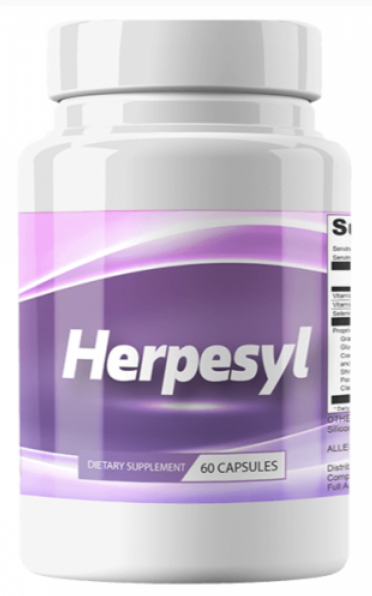Unfortunately, there isn’t a cure for herpes. However, doctors sometimes prescribe Valtrex to be taken every day in order to prevent outbreaks and lower transmission rates. Using antiviral medications like Valtrex every day is known as herpes suppressive therapy.
✔️ Medically reviewed by Gerard Sison, PharmD on Nov. 26, 2018

Depending on the severity of a case of herpes, doctors may prescribe one of two methods for managing symptoms:
- Intermittent treatment consists of taking an antiviral drug when you experience an outbreak to lessen the severity of symptoms and shorten their duration.
- Suppressive therapy consists of taking a regular dose of antivirals every day whether you have an outbreak or not. The purpose is to not only prevent outbreaks, but also to reduce the likelihood of transmitting herpes to a sexual partner.
About Herpes Suppressive Therapy
If you opt for suppressive therapy, one of the most common antiviral medications is Valtrex, or valacyclovir. Another commonly prescribed medication goes by the name of Zovirax, or acyclovir. Valacyclovir and acyclovir can be considered close cousins as they are chemically similar.
Read on for the details about how effective suppressive therapy is and how it can affect transmission rates. We’ll also go over dosing and side effects of this medication. Note: This isn’t a substitute for medical advice. You should always consult your doctor to determine what’s right for your health.
1. Effectiveness
If you experience frequent herpes outbreaks (six or more per year) that interfere with day-to-day life, suppressive therapy may be worthwhile.
- Suppressive therapy can reduce outbreaks by 70% to 80%, and in some cases completely eliminate them.
- In couples where one partner had HSV-2 and the other did not, a study showed that suppressive therapy reduced the risk of overall acquisition by almost 50%.
- One study showed that people who had 12 outbreaks per year reduced them to less than two per year after a year of herpes suppressive therapy.
- When outbreaks do occur, they are often milder and shorter in duration than they were before the use of suppressive therapy.
2. Cost
The cost of suppressive medications depends on your area as well as the brand and dosage of medication. Your pharmacy and insurance plan may also play a role in the overall cost.
- Valacyclovir is typically more expensive than Acyclovir. However, you would be taking far fewer pills. For example, you may have to take acyclovir tablets up to five times daily versus only once daily with valacyclovir.
Some find that the peace of mind is worth the cost.
3. Transmission Rates
Taking extra precautions such as using condoms and abstaining from sex during outbreaks can reduce the chances of herpes being transmitted to your partner. Take a look at the following points from a study on the effect of suppressive therapy on transmission. (Note: because of the nature of female and male reproductive organs, it’s more probable for women to contract HSV from men):
Research (funded by Valtrex) has reported these transmission rates for monogamous couples consisting of one affected partner and one susceptible partner:
- 3.3% transmission rate from man to woman with Valtrex use vs 7.4% transmission rate from man to woman without Valtrex use
- 1.2% transmission rate from woman to man with Valtrex use vs 1.8% transmission rate from woman to man without Valtrex use
- Overall transmission rate of 2.1% when using condoms AND medication
- Virtually zero transmission rate (0.4%) when abstaining or limiting sexual contact to less than 5 times per month
4. Dosage
Valtrex can be taken at any time of day with or without food. The recommended Valtrex dose for adult patients with normal immune systems is one gram every day.
Patients who have experienced less than nine flare-ups per year may only need to take 500 mg per day.
Those who are HIV positive will have to take 500 mg twice daily.
Dosing largely depends on the individual and should be discussed with your physician.
5. Side Effects
Side effects of any drug can always be a concern. Generally, suppressive therapy is considered safe in the long run and side effects are mild for most people.
The most common side effects of Valtrex include:
- Headaches
- Abdominal pain
- Nausea
- Vomiting
- Dizziness
Other possible side effects include diarrhea, agitation, joint pain, confusion, constipation, edema, sore throat, and/or weakness.
Very rarely (less than 1 out of 1000), patients may experience severe symptoms such as ataxia, anaphylaxis, loss of appetite, encephalopathy, fatigue, hepatitis, renal impairment, leukopenia, psychotic symptoms, seizures, Stevens-Johnson syndrome, toxic epidermal necrolysis, or tremors.
Talk to your doctor before starting or altering a treatment plan. Stop taking Valtrex and talk to your doctor immediately if you experience side effects such as bloody diarrhea, severe bruising, fainting, fever, red spots unrelated to herpes or chickenpox, urinating less than usual or not at all or weakness.
6. Notes on Pregnancy
Valtrex is a Pregnancy Category B medication. There are currently no adequate studies evaluating the use of Valtrex in pregnant patients. Therefore, its use is only justified if the potential benefit outweighs the risk to the fetus.
Sometimes, doctors prescribe Valtrex during the last four weeks of pregnancy to prevent an outbreak, especially if this is the first occurrence of herpes for the patient. Taking Valtrex for the last month or so can help prevent the possibility of transmitting herpes to the baby during labor.
That being said, while Valtrex may be administered to prevent an outbreak during labor, other factors may apply if it is being used regularly. Your doctor will decide if its benefits outweigh the risks of use throughout the entire pregnancy.
Sources:
- Martens MG, Fife KH, Leone PA, Dix LP, Brennan CA. Once daily valacyclovir for reducing viral shedding in subjects newly diagnosed with genital herpes. Infect Dis Obstet Gynecol. 2009;2009:105376. (Link)
- Valtrex FDA Label. (Link)
- Valtrex Prices and Valtrex Coupons. GoodRx. https://www.goodrx.com/valtrex. Accessed December 4, 2018. (Link)





